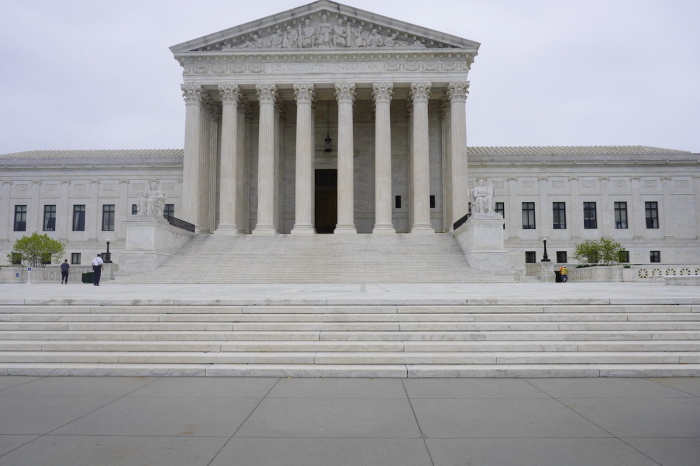

Published on: 07/03/2025
This news was posted by Apex Wealth Advisors
Description

The U.S. Supreme Court will consider reviving a preacher's challenge to a Mississippi town ordinance restricting his ability to evangelize outside of an amphitheater.
In a miscellaneous order released Thursday morning, the Supreme Court agreed without comment to hear oral arguments in the case of Gabriel Olivier v. Brandon, Mississippi, et al.
At issue is an ordinance passed by Brandon that heavily restricts protests outside of the amphitheater three hours before an event begins until one hour after it concludes.

Subscribe to get daily/weekly email with the top stories (plus special offers!) from The Christian Post. Be the first to know.
The First Liberty Institute and the law firm Gibson Dunn, which are representing Olivier, praised the Supreme Court’s decision to hear the appeal.
“Every American has First Amendment rights to free speech; and every American has a right to their day in court,” said FLI President Kelly Shackelford in a statement Thursday.
“Both of these rights were violated for Gabe Olivier. The Supreme Court will now decide whether those rights will be protected for all Americans.”
Opened in 2018, the Brandon Amphitheater is an open-air venue frequently used for ticketed concert events, with a capacity of over 8,500.
According to Ordinance § 50-45, groups and individuals are heavily restricted in their demonstrations from three hours before an event begins until one hour after a gathering concludes.
Additionally, the ordinance designates a “protest area” for those demonstrating “without the necessity of pre-notice or permit,” with the speech zone barring any vehicles, lasers or other blinding lights, loudspeakers that are “clearly audible more than 100 feet from where the protest area is located” and any objects that would give someone an elevated platform, among other things.
The ordinance permits temporary handheld signs, but they cannot be made from hard materials that could be used as a weapon and “shall not be affixed to anything in the protest area or otherwise affixed to the protest area.”
“Each group shall have a representative who shall be present at all times while the group is, in whole or in part, within the protest area. The representative shall, when reasonably requested by the chief of police and/or his designee, provide photo identification,” continued the ordinance.
“Individuals who are engaged in a demonstration and/or protest shall maintain on their possession while in the protest area photo identification and provide the same to the chief of police and/or his designee as and when reasonably requested.”
The ordinance reportedly came in response to the actions of Olivier and others, who, while preaching near the venue, would engage in inflammatory religious rhetoric and were accused of using derogatory language.
Olivier claims the designated protest area was so far from crowds that they couldn't hear his message. He was arrested for violating the ordinance by trying to move closer. After paying a fine, he filed a lawsuit challenging the constitutionality of the lawsuit.
Olivier’s lawsuit was dismissed by a district court, and later by a three-judge panel of the 5th U.S. Circuit Court of Appeals. The full appeals court declined to hear an appeal.
The First Liberty Institute argues that the district court dismissed the lawsuit without considering its merits, taking issue with the court's reliance on the Supreme Court's precedent that people convicted of crimes can't sue police officers or other authority figures.
Last December, a 5th Circuit panel ruled against Spring Siders, an acquaintance of Olivier who had filed a separate legal challenge to the Brandon ordinance.
Circuit Judge Jacques L. Wiener, Jr., a George H.W. Bush appointee, authored the unanimous panel opinion, “there is enough evidence to show that Brandon is likely to succeed in proving this element.”
“Brandon’s application of § 50-45 to Siders is narrowly tailored to its interest in public safety and traffic control,” wrote Wiener. “Although Siders has the burden of establishing a likelihood of success on the merits, this requires Brandon to defend the constitutionality of its actions. It has done so.”
News Source : https://www.christianpost.com/news/supreme-court-to-consider-preachers-challenge-to-restrictions.html
Other Related News
07/04/2025
Growing up we had a traditional black-domed Weber Grill Helping my parents stack the charc...
07/03/2025
As the costliest wildfire in US history continues to shape life in Los Angeles Israeli fi...
07/03/2025
Betsy Ross who lived and died on a Philadelphia street not far from where America was fo...
07/03/2025
By Ian M Giatti Christian Post Reporter Thursday July 03 2025Dr Phil McGraw television p...
07/03/2025












